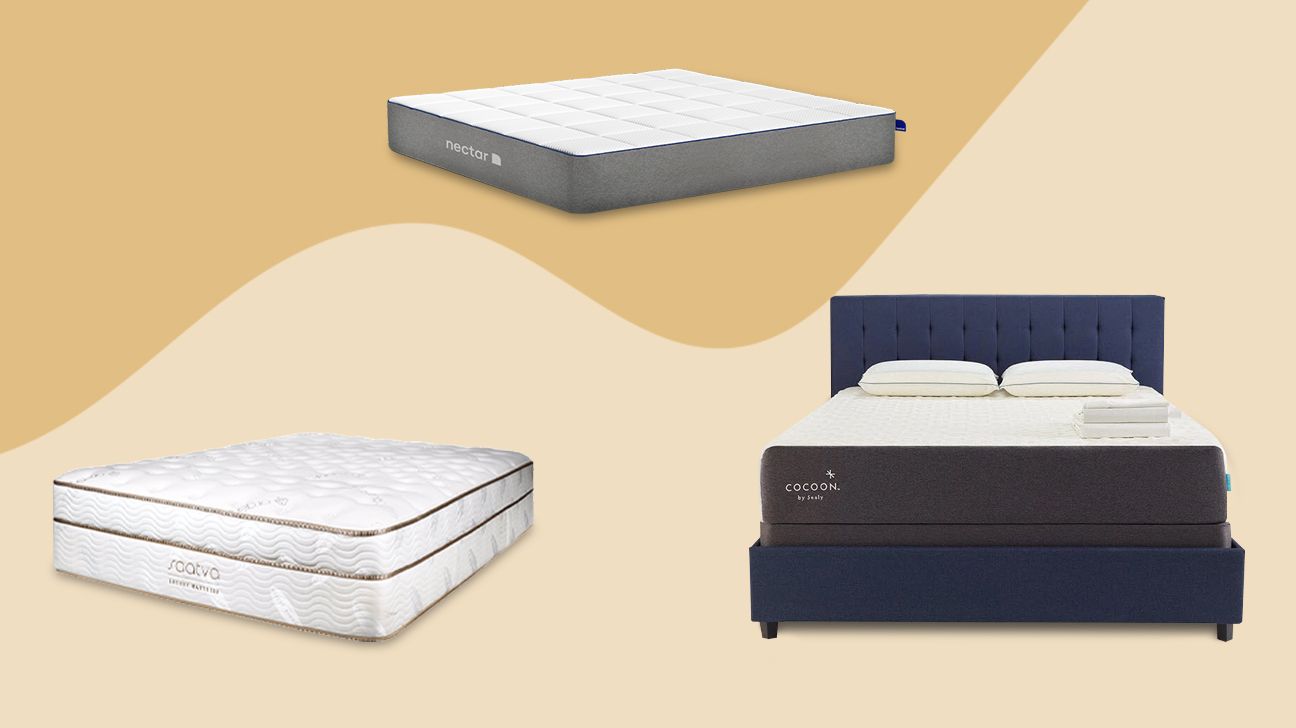Mattresses from DreamCloud, Cocoon, and Tempur-Pedic provide some soothing sleeping options for older people.

As you age, getting a solid night’s sleep may become harder. Your mattress can affect how your body feels and your overall sleep quality.
Because there’s no one-size-fits-all mattress, we’ve included a wide range of mattresses that come in a variety of support levels, so you can find a model that fits your needs.
In our mattress reviews, we’ve addressed issues such as hot sleeping and features like motion isolation and support along the edges to help you find the most comfortable sleep surface.
(based on queen)
- Customer reviews: To choose the mattresses on this list, we looked at customer reviews on multiple sites. We only included mattresses that got more raves than nays.
- Features: We took specific note of features important for older adults, such as versatility and choice around coolness and firmness levels. We included mattresses of different thicknesses. And each one can be used on height-adjustable bases.
- Company reputation: We took manufacturer reputations and transparency into account and only included mattresses that come with warranties and generous at-home sleep trials.
- Materials and certifications: Each foam mattress is made from CertiPUR-US certified foams. This means they’re made with eco-friendly materials.
Budget
Mattresses can be expensive. We tried our best to include a broad range of price points and included mattresses that come with financing options.
Mattresses go on sale many times a year. You may also be eligible for discounts if you are or were a healthcare professional, member of the military, or an educator.
Some university and college alumni organizations offer discounts on mattresses as well as other perks, so check out yours if you’re a college grad.
Body aches and pains
Do you have back, neck, or hip pain? Lots of older adults do, due to conditions such as arthritis and spinal stenosis.
Research suggests that medium-firm mattresses help promote spinal alignment and overall sleep comfort.
Sleep issues
Is snoring or acid reflux an issue for you or your partner? If so, an adjustable bed frame that lets you raise the head of the bed may make any mattress you choose more comfortable and effective at managing these issues.
Bed height
Do you have trouble getting in and out of your current bed? Bed height may make a difference. If getting in and out of bed is difficult, undue stress may be placed on your legs, lower back, and hip joints.
A bed that’s too high or too low can be especially challenging if you or your partner use mobility devices, such as a wheelchair or cane.
Temperature
Do you sleep hot? If so, look for a bed that has cooling properties.
Memory foam tends to retain heat, unless it’s structured with channels or layers that let some airflow through or are infused with a cooling agent, such as graphite or copper.
Some mattresses are covered with fabrics designed to reduce body temperature. Others are designed to promote airflow and wicking.
What type of mattress is best for seniors?
A medium-firm mattress can be a good choice for all sleeping positions, but you may find that a softer or firmer mattress is more to your liking.
If you’re a stomach sleeper, you may prefer a firmer mattress that doesn’t sag under your midsection.
If you’re a side sleeper, you may prefer a softer mattress that provides support and sufficiently hugs your curves.
You know your body changes as you age, but how about your sleep?
You may experience several changes to your sleep habits, including:
- sleeping less or more
- taking longer to fall asleep
- spending less time in deep sleep
- napping more
According to a
So if you’re having trouble sleeping, don’t just chalk it up to aging. Talk with a doctor about what you’re experiencing. There may be an underlying issue at play, and your doctor may be able to help.
The
- sticking to a regular bedtime and wake time
- skipping naps
- avoiding screens before bed
- winding down before bed
- using blackout curtains or a sleep mask
- taking part in regular physical activity
- not eating a lot before bed
- lowering the room temperature
As you age, you’re more likely to experience aches and pains, which can keep you up at night. Older adults may also be more likely to be taking medications, some of which can affect sleep patterns.
Firm mattresses are supportive, so they’re a great option for older adults with issues like arthritis. But there’s such a thing as too much support. A mattress that’s too hard may dig into your joints, causing uncomfortable pressure points.
Ultimately, personal preference and comfort are what matter most.
Anecdotally, older adults seem to have more trouble falling asleep than younger adults. But research from 2018 suggested that sleep doesn’t change that much after the age of 60.
It depends a lot on the person, though. If you’ve developed a condition or illness as you’ve gotten older, for instance, that might affect your sleep.
A 2018 review suggests that there’s no magic sleep number. But most people function best on between 7 to 9 hours of quality sleep per night.
A good night’s sleep can be one of life’s joys, but for many, this simple pleasure may be elusive.
Health conditions, social factors, and lifestyle habits can all contribute to chronic or acute insomnia in adults.
While more than your mattress may be affecting your sleep, the right bed (and bedding) can make it easier to get some rest.




